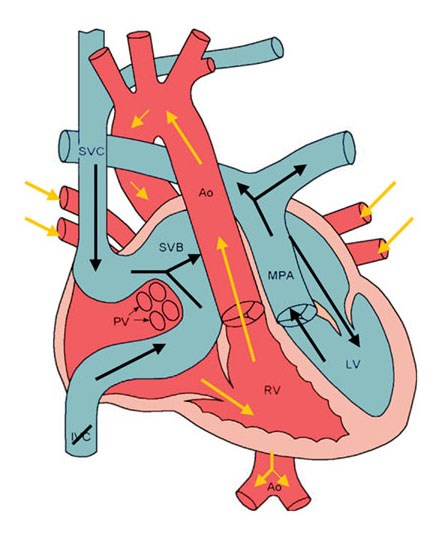Senning Operation
India
-
Our Price USD 5850
-
Hospital Price USD 6500
-
You Save : USD 650
Booking Amount: USD 585. Pay Remaining 90% at the hospital.
Book NowAdditional Credit
Among the important extras we offer as part of the Additional Credit are the following:
-
Site Tourism For The Patient & Attendant
-
Airport Pick & Drop Service
-
Ambulance service at airport
-
Priority appointments with The Doctor
-
Cancel Easily Anytime with Full Refund
-
Room Upgradation
-
Free Online Doctor Consultation Valued at USD 20
-
Free hotel Stay for 5 to 7 days Accordingly
-
Welcome Kit at Arrival
-
Interpreter
-
Medical Visa Assistance
What is Included?
- Doctor consultation charges
- Lab tests and diagnostic charges
- Room charges inside hospital during the procedure
- Surgeon Fee
- Cost of implant
- Nursing charges
- Hospital surgery suite charges
- Anesthesia charges
- Routine medicines and routine consumables (bandages, dressings etc.)
- Food and Beverages inside hospital stay for patient and one attendant.
What is not Included?
- Extra Radiology Investigations
- Healthcare Professionals Charges of other consultations.
- Other Requested Services such as Laundry etc.
- Additional Pharmaceutical Products and Medicines After Discharge from Hospital.
- Management of Conditions Unrelated to Procedures or Pre-Existing.
- The cost of any additional implants will be in addition to the package cost.
Package Description
Senning Operation:
One of two "atrial switch" techniques used to functionally correct transposition of the great arteries is the Senning repair (the other being the Mustard repair). The two fixes are based on the same basic premise. The blood flow in the body is diverted from the right ventricle to the left ventricle.
Disease Overview:
Transposition of the great arteries
The aorta and pulmonary arteries are transposed when the aorta emerges from the right ventricle and the pulmonary artery emerges from the left ventricle, resulting in independent, parallel pulmonary and systemic circulations; oxygenated blood can only enter the body through openings connecting the right and left sides (eg, patent foramen ovale, ventricular septal defect [VSD]). Severe newborn cyanosis and, if a VSD is present, cardiac failure are the most common symptoms. The existence of related congenital abnormalities affects the heart sounds and murmurs. Echocardiography is used to make the diagnosis. Surgical repair is the only way to go.
Disease Signs and Symptoms:
Within hours of delivery, severe cyanosis develops, followed by metabolic acidosis due to insufficient tissue oxygenation. Patients with a moderate or large atrial septal defect, a large ventricular septal defect, a patent ductus arteriosus, or a combination of these defects have less severe cyanosis, but symptoms and signs of heart failure (e.g., tachypnea, dyspnea, tachycardia, diaphoresis, inability to gain weight) may appear in the first weeks of life.
Physical examination is normal except for widespread cyanosis. Unless there are concomitant irregularities, heart murmurs may be absent. S2 is the solitary and loud second heart sound.
Disease Causes:
- During pregnancy, as the baby's heart is forming, transposition of the major arteries occurs. Most of the time, the cause is unknown.
- It may be essential to understand how the heart normally pumps blood in order to comprehend transposition of the major arteries.
- The pulmonary artery, which delivers blood from the heart to the lungs, usually attaches to the lower right chamber of the heart (right ventricle).
- The lungs' oxygen-rich blood is next pushed to the heart's upper left chamber (left atrium).
- The blood then enters the bottom left chamber (left ventricle).
- The aorta, the body's major artery, usually connects to the left ventricle. It is responsible for transporting oxygen-rich blood from the heart to the rest of the body.
Disease Diagnosis:
ECG Echocardiography and chest x-ray
Clinical suspicion of transposition of the great arteries is confirmed by 2-dimensional echocardiography with colour flow and Doppler investigations, which is backed by chest x-ray and ECG.
The cardiac shadow on chest x-ray may resemble an egg on a string, with a thin upper mediastinum. Although the ECG reveals right ventricular hypertrophy, it is possible that it is typical for a newborn.
Cardiac catheterization is seldom required for diagnosis, however it may be used to widen the atrial communication (balloon atrial septostomy) or to better understand complicated coronary artery architecture.
Disease Treatment:
To cure the congenital cardiac abnormality, all newborns with full transposition of the great arteries (D-TGA) require surgery. Treatment for congenitally corrected transposition (L-TGA) is dependent on when the problem is discovered and whether or not there are any other cardiac issues present.
Before corrective surgery, the baby's doctor may prescribe drugs or a catheter treatment to assist control the issue.
Surgical or non-surgical techniques
Transposition of the great arteries surgery is generally performed within the first few days or weeks following birth. The type of transposition determines the options available. Patients with congenitally repaired transposition do not always require surgery.
The following surgeries and techniques may be used to treat transposition of the great arteries:
Atrial septostomy is a surgical procedure that removes the septum from the heart. As a temporary therapy, this catheter operation can be performed quickly. Balloon atrial septostomy is a surgery that expands a natural link between the heart's upper chambers (atria). It aids in the mixing of oxygen-rich and oxygen-depleted blood, resulting in increased oxygen delivery to the baby's body.
Operation of the arterial switch. This is the most common procedure for correcting great artery transposition. The pulmonary artery and the aorta are shifted to their proper locations during an arterial swap procedure. The pulmonary artery and the aorta are linked to the right and left ventricles, respectively. The aorta is also reconnected to the cardiac arteries.
Operation of the atrial switch The surgeon separates blood flow between the heart's two upper chambers during this procedure (atria). The right lower chamber (right ventricle) receives oxygen-rich blood returning to the heart from the lungs and pumps it to the aorta. The left lower chamber (left ventricle) receives oxygen-poor blood returning to the heart from the body.
The Rastelli method is used. If a newborn has a ventricular septal defect with transposition of the great arteries, this operation may be indicated. The surgeon uses a synthetic patch to seal the hole (septal defect) in the heart and redirects blood flow from the left ventricle to the aorta, allowing oxygen-rich blood to reach the body. The pulmonary artery's link to the left ventricle has been severed. The right ventricle is then joined to the artery that leads to the lungs through an artificial valve (pulmonary artery).
Procedure for a double switch. Congenitally corrected transposition is treated with this complicated surgical surgery.
It alters the major artery connections and redirects blood flow into the heart with the purpose of putting the left lower heart chamber (ventricle) in a position to pump oxygen-rich blood to the aorta.
Other cardiac disorders, such as ventricular septal defect or pulmonary outflow blockage, may necessitate further procedures. If the transposition of the major arteries disrupts cardiac signals, a pacemaker may be required (heart block).
Information related to Treatment
Package Details
Days in Hospital
10 Days
Days in Hotel
*
14 Days
Room Type
Private
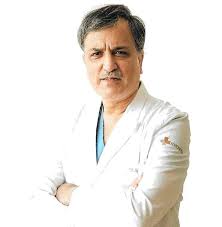
Treating Doctor
Dr. Anil Bhan
Cardiac Surgeon- Pediatric Cardiology, Pediatric Cardiac Surgeon
Medanta-The Medicity, Gurgaon Gurgaon, India
37 Years of Experience
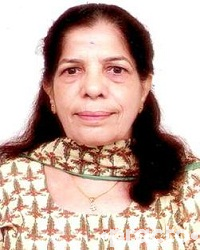
Treating Doctor
Dr. Shanti Talwar
Pediatric surgeon- Pacemaker Implantation, Coronary Angioplasty, Bypass Surgery, Intra - Arterial Thrombolysis Procedures, Mitral/Heart Valve Replacement, Congenital Disorders, Radial Approach Angiography, Cardiac pacing, Appencicitis Treatment, Balloon Mitral Valbuloplasty
Indraprastha Apollo Hospitals, New Delhi New Delhi, India
59 Years of Experience
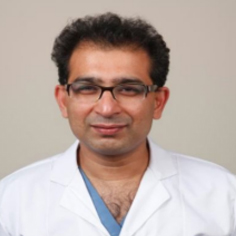
Treating Doctor
Dr. Viresh Mahajan
Paediatric Cardiology- Heart transplant, Angioplasty, GERD Surgery, Kidney Transplant, Pulmonary Arterial Hypertension, Kidney Stone Treatment, Bidirectional Glenn, Fontan procedure & Ebstein anomaly, Arterial switch operation, ASD VSD repair, Transposition of the Great Arteries (TGA) Surgery, Double Inlet Left Ventricle (DILV) Treatment, Double Outlet Right Ventricle (DORV) Surgery, Device implantation for heart failure treatment, Hypertrophic cardiomyopathy treatment, Surgery of ear for alleviation of deafness, Endoscopic Metal Stent Placement, Fitsula treatment, Coarctation, Brain Surgery and Brain Aneursym Surgery, Spasticity, Hip Arthroscopy, Pediatric Lung Transplant
Sarvodaya Hospital Faridabad, India
25 Years of Experience
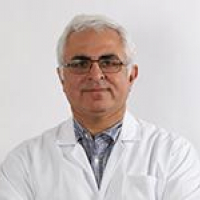
Treating Doctor
Dr. Hemant Madan (Prof)
Cardiologist- Adult & Paediatric- Pediatric Cardiology, Complex coronary interventions, peripheral interventions, Device implantation for rhythm disorders, Valve stenosis, Complex coronary and adult interventions, Paediatric interventions, Advanced pacing and device management, Paediatric and fetal echocardiography
Narayana Super Speciality hospitals Gurgaon, India
18 Years of Experience
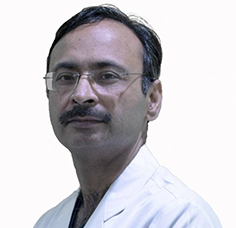
Treating Doctor
Dr. Sushil Azad
Paediatric Cardiology- Tetralogy of Fallot repair, Truncus arteriosus repair, Congenital Heart Disorder CHD, Arteriovenous Malformations, Congenital Limb Defects Surgery, Congestive Heart Failure (CHF) Treatment, Congenital Pseudarthrosis of the Tibia (CPT) Surgery, Cloacal Malformation Surgery, Pulmonary Atresia Surgery, Single Ventricle Defects Surgery, Transposition of the Great Arteries (TGA) Surgery, Connection Repair Arterial Switch, Double Inlet Left Ventricle (DILV) Treatment
Fortis Escorts Heart Institute New Delhi, India
17 Years of Experience
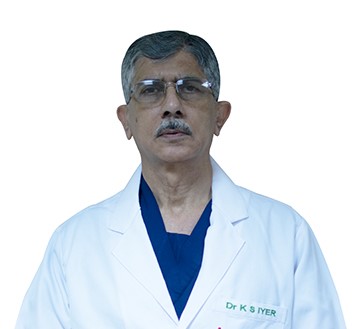
Treating Doctor
Dr. Krishna S. Iyer
Paediatric Cardiac Surgeon- Congenital heart surgery, paediatric Cardiologist, Neonatal heart surgery
Fortis Escorts Heart Institute New Delhi, India
30 Years of Experience
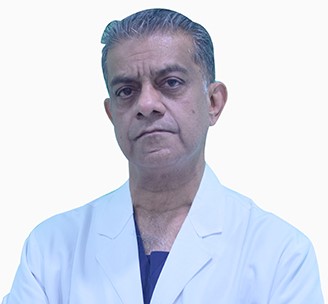
Treating Doctor
Dr. S. Radha Krishnan
Interventional Cardiologist- Pacemaker Implantation, Transcatheter Aortic Valve Implantation (TAVI), Coronary Angiography, Cardiac Ablation, Cardiac Catheterisation, Aortic Anuerysm Surgery/ Endovascular Repair, Cardioversion, Carotid Angioplasty And Stenting, Implantable Cardioverter-Defibrillators (ICDS), Pacemaker Implantation, Peripheral Angioplasty, PCI, TMT, TOF, PDA, DGTA, Pacemaker Implantation, Cardiac Catheterisation, Carotid Angioplasty And Stenting, Pacemaker Implantation, Peripheral Angioplasty, Cardiac Ablation, Cardioversion, Pacemaker Implantation, Cardiac Catheterisation
Fortis Escorts Heart Institute New Delhi, India
40 Years of Experience
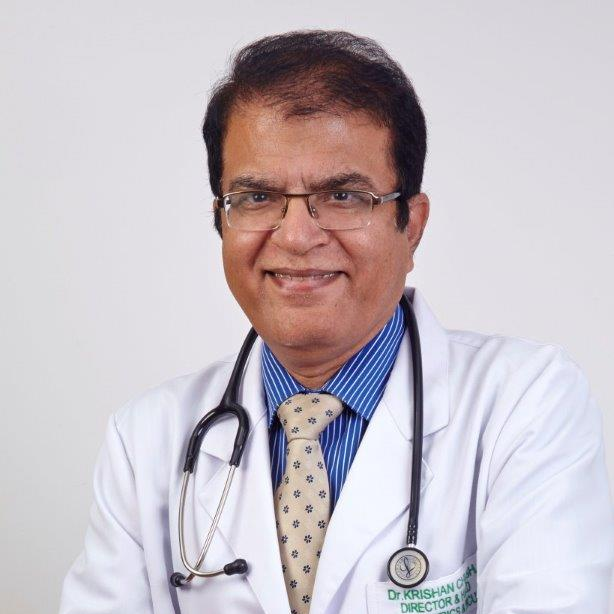
Treating Doctor
Dr. Krishan Chugh
Pediatrician- Pediatric Pulmonology, Allergy Specialist, Bronchoscopy, Bronchoscopy, Bronchoscopy, Pediatric Neonatalogy, Bronchoscopy, Bronchoscopy
Fortis Memorial Research Institute Gurgaon, India
39 Years of Experience
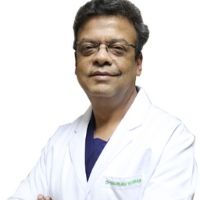
Treating Doctor
Dr. Gaurav Kumar
Paediatric Cardiothoracic Surgeon- Arterial switch operation, Double switch operation, Total anomalous pulmonary venous connection, Arch repair, ASD VSD repair, Tetralogy of Fallot repair, Truncus arteriosus repair, Rastelli operation & Cone repair and cardiac transplant
Narayana Super Speciality hospitals Gurgaon, India
21 Years of Experience
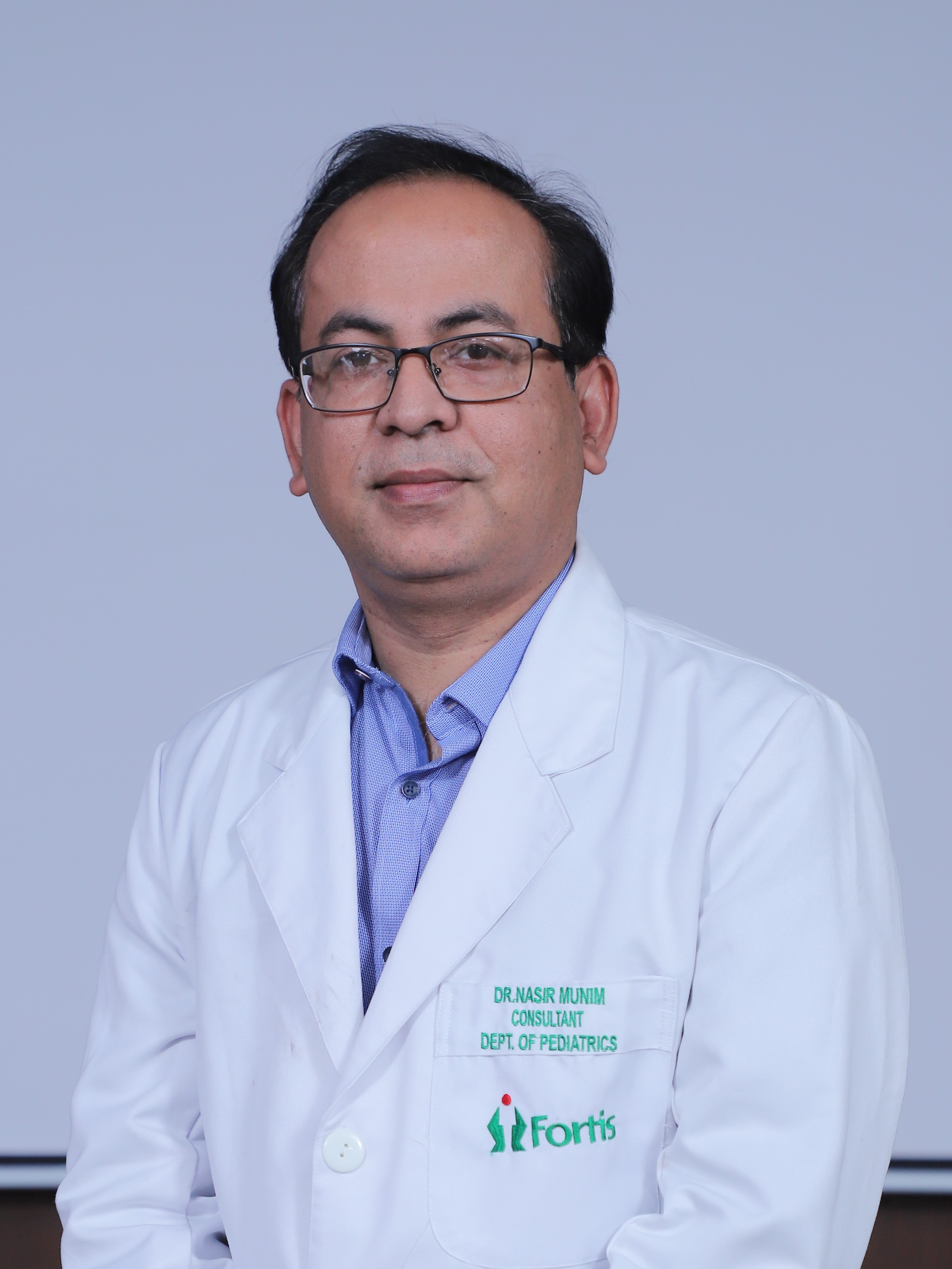
Treating Doctor
Dr. Nasir Munim
Pediatrician- Pediatric Critical Care Medicine, Allergy Testing, Infant & Child nutrition, Allergy Testing, Atrial Septal Defects (ASDS), Thyroid disorder, Vaccination/ Immunization, Chickenpox Treatment, Asthma, Jaundice Treatment, Asthma, Cerebral Palsy, Vaccination/ Immunization, Infant & Child nutrition, Chickenpox Treatment, Chickenpox Treatment, Allergy Testing, Infant & Child nutrition, Bedwetting treatment and management, Polio, Infant & Child nutrition, Child Care, Lactation problems, Management of Restless Child Disorder, Child and Adolescent Problems, Chickenpox Treatment, Cerebral Palsy, Neurofibromatosis, Treatment of Sids, Cough in Children, Management of Growth Retardation, Multiple System Atrophy, Jaundice Treatment, Child and Adolescent Problems, Asthma, Allergy Testing
Fortis Hospital Noida Noida, India
20 Years of Experience

